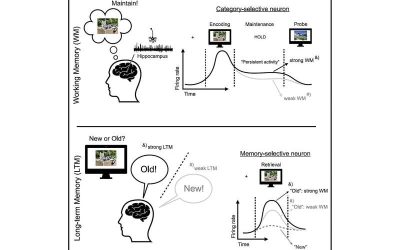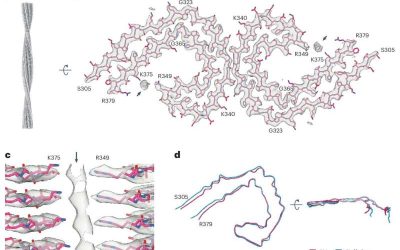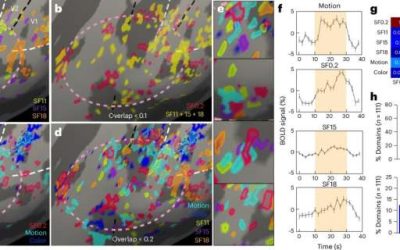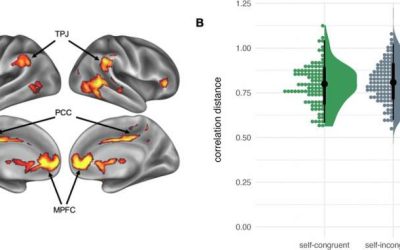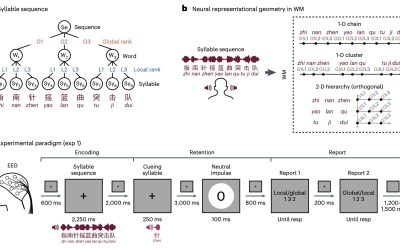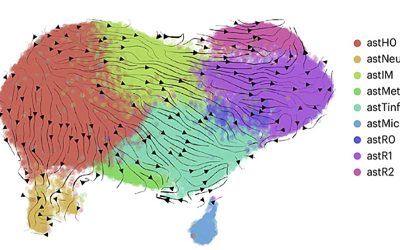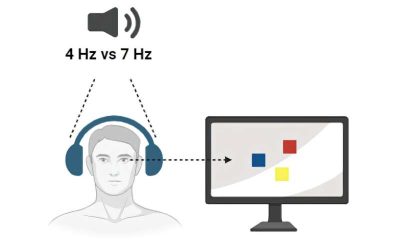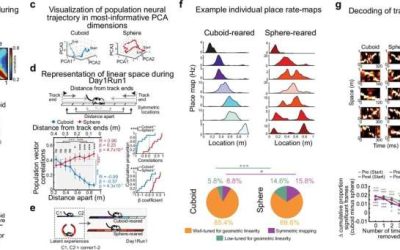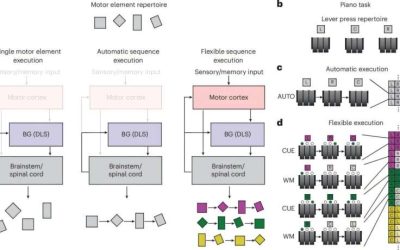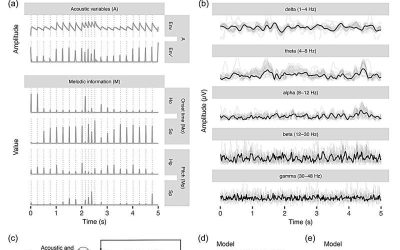The human working memory (WM) is the cognitive system responsible for the temporary storage and processing of information vital to task completion. In contrast, human long-term memory (LTM) is the system that holds information for prolonged periods of time, organizing...
Neuroscience
Study explores association between Tau filaments and extracellular vesicles in Alzheimer’s disease
Alzheimer's disease (AD) is a debilitating neurodegenerative disorder associated with a progressive decline in memory and mental abilities, which can significantly hinder people's ability to complete daily tasks. Past studies found that patients diagnosed with AD, as...
Precise map of primate foveolar cortex uncovers intricacies of brain’s visual system
Humans and other primates are innately able to perceive fine details, vibrant colors and focus their attention on specific elements of what they are seeing at a given time. This ability is supported by the foveola, a tiny section of the retina that is densely packed...
Self-esteem influences self-related representations in others’ brains: Observing ‘self-recapitulation’ through MRIs
Different people have distinct and subjective perceptions of their personal worth, broadly referred to as "self-esteem." For decades, neuroscientists and psychologists have tried to pinpoint the neural basis of self-esteem and the neural processes associated with...
Study shows that 2D neural geometry underlies hierarchical organization of sequences in human working memory
The human brain can store salient information, such as numbers, instructions or other details that are important for completing a task, for brief periods of time, via a cognitive system known as working memory (WM). This system is known to be constructive in nature,...
Detailed mapping shows how astrocytes change throughout the progression of Alzheimer’s disease
Astrocytes are star-shaped glial cells in the central nervous system that support neuronal function, maintain the blood-brain barrier, and contribute to brain repair and homeostasis. The evolution of these cells throughout the progression of Alzheimer's disease (AD)...
Sensory stimulation enhances the capacity of human visual working memory, study finds
To complete tasks that require storing relevant visual details for short periods of time, such as solving a puzzle, reading or comparing different objects, humans leverage their so-called visual working memory. This is a cognitive system that allows people to store...
Rodent study explores how early Euclidean geometry experiences shape hippocampal development
Euclidean geometry is the branch of mathematics describing shapes and the spatial relationships between objects in two-dimensional (2D) and three-dimensional (3D) settings. The rules of Euclidean geometry guide our understanding of the world and everything inhabiting...
Flexibility demands influence motor cortex’s involvement in execution of motor sequences, rat study finds
The motor cortex is a part of the mammalian brain and is known to support the planning and control of voluntary body movements. Some past neuroscience studies, however, found that the motor cortex may not be necessary for executing some learned skills and motor...
Study explores how brain waves reflect melody predictions while listening to music
The human brain is highly skilled at detecting patterns in the world and using this information to predict future events. This ability to anticipate events is also reflected in how we experience music, precisely in our ability to intuitively anticipate what will come...

